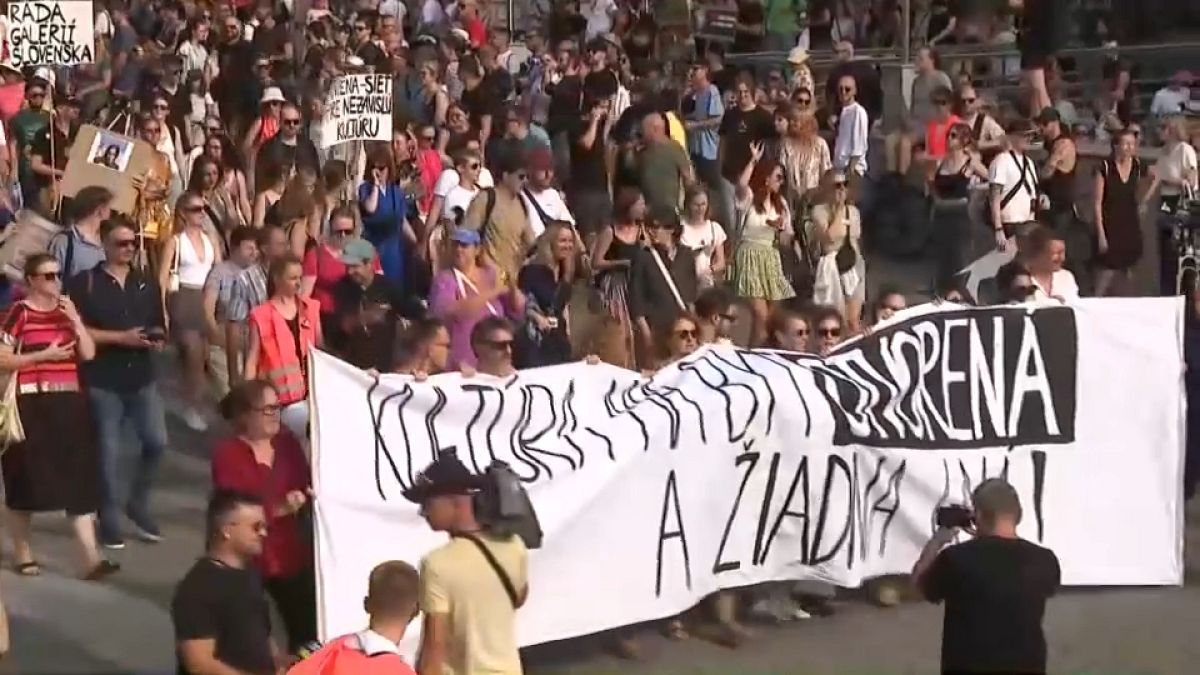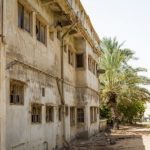Slovakia’s hard-right Culture Minister Martina Šimkovičová has sparked controversy by dismissing the directors of the Slovak National Theatre and Slovak National Gallery, leading to widespread protests in the capital city of Bratislava. The recent firings, which also included National Gallery head Alexandra Kusá, have been seen by many as a political purge by the minister. Šimkovičová accused National Theatre director Matej Drlička of engaging in “political activism” and blamed him for a chandelier incident during a performance. Meanwhile, Kusá was dismissed for what the minister described as “managerial failures” and her family ties to an architect involved in the gallery’s reconstruction.
The protests in Bratislava drew around 9,000 people who gathered in front of the Slovak National Theatre and Culture Ministry to voice their opposition to the dismissals. Many in the country believe that the minister’s actions are undermining the independence and integrity of cultural institutions. Since her appointment last October, Šimkovičová has been embroiled in controversies, including her previous involvement in an anti-migrant social media scandal that led to her dismissal from a TV channel. She has also taken controversial stances on LGBTQ+ rights, COVID-19 vaccinations, and cultural relations with Russia.
Despite facing criticism and backlash, Minister Šimkovičová has continued to push her agenda, which includes opposing the Istanbul Convention aimed at protecting women victims of violence. Her close ties to Prime Minister Robert Fico, who recently survived an assassination attempt and made a return to public life, have raised concerns about the direction of Slovakia’s cultural policies. The country’s reputation on the international stage has also been impacted by Šimkovičová’s decisions, particularly her efforts to restore cultural relations with Russia after its invasion of Ukraine.
The dismissal of key cultural figures in Slovakia has raised questions about the minister’s motives and the government’s commitment to preserving the country’s cultural heritage. Many fear that the ongoing purge of dissenting voices in cultural institutions signals a broader crackdown on freedom of expression and artistic independence. As protests continue to grow in size and momentum, it remains to be seen how the government will respond to calls for accountability and transparency in its cultural policies. Slovakia’s cultural sector is at a crossroads, and the outcome of this political struggle could have far-reaching implications for the country’s artistic community and its reputation on the global stage.










